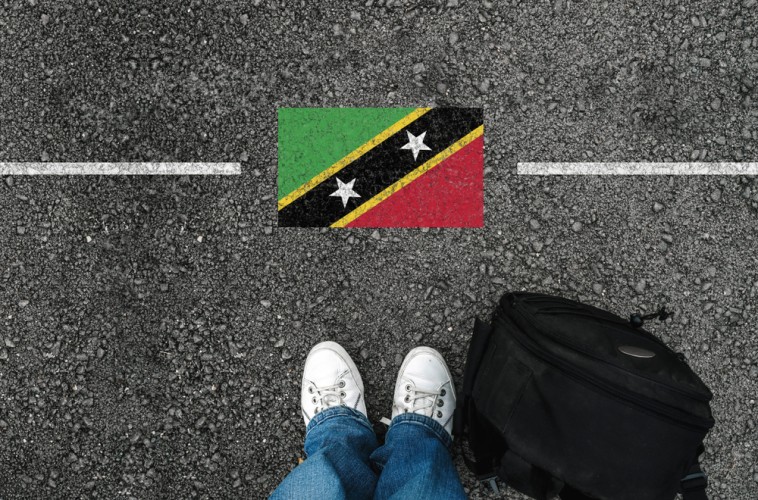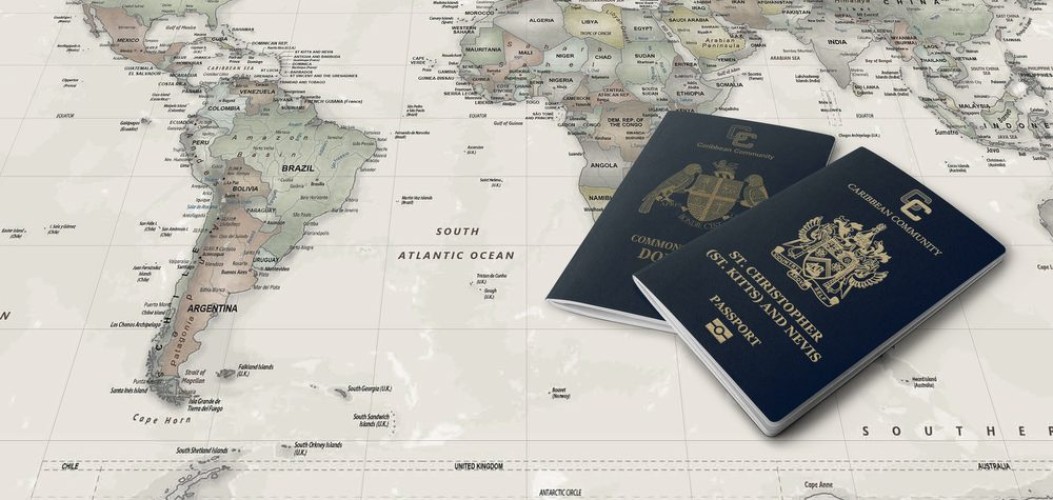St Kitts and Nevis is well known as both a Caribbean tourist destination and a respected international financial hub. Its banking sector is tightly regulated by the Eastern Caribbean Central Bank (ECCB), which issues the Eastern Caribbean dollar (XCD) and ensures financial stability across the region. For both locals and foreigners, banking services in St Kitts and Nevis are diverse—ranging from everyday retail banking to international wealth management. This article explores the country’s banking landscape, including local and international institutions, account types, requirements for foreigners, fee structures, and digital solutions.
Overview of the banking sector
The banking system is built around the ECCB’s supervision, ensuring compliance with international anti-money laundering (AML) and know-your-customer (KYC) standards. Local banks mainly serve residents and businesses, while international banks attract high-net-worth individuals who use St Kitts and Nevis for asset protection and tax-neutral wealth management. Together, they form a dual structure that supports both the domestic economy and global financial services.
Main local banks and credit unions
Local banks and credit unions are vital pillars of the financial ecosystem, supporting daily transactions, small businesses, housing, and education loans. The St Kitts-Nevis-Anguilla National Bank (SKNANB) is the largest locally owned bank in the Eastern Caribbean, while the Development Bank of St Kitts and Nevis plays a key role in financing social projects. Cooperative credit unions provide affordable lending and encourage savings at the community level. Comparison of main local banks and credit unions:
| Institution | Type | Key Services | Target Clients | Special Features |
|---|---|---|---|---|
| St Kitts-Nevis-Anguilla National Bank | Commercial Bank | Retail banking, loans, credit cards, investments | Individuals, businesses | Largest indigenous bank in the Eastern Caribbean |
| Development Bank of St Kitts and Nevis | Development Bank | Housing, education, small business loans | Students, families, entrepreneurs | Government-backed with development focus |
| St Kitts Cooperative Credit Union | Credit Union | Savings, personal loans, mortgages | Local community members | Member-owned, lower fees |
| Nevis Cooperative Credit Union | Credit Union | Mortgages, savings, loans | Nevis residents | Strong community ties |
These institutions ensure that financial services are accessible to both residents and small enterprises while promoting inclusive economic development.
International and regional banks
International and regional banks such as Republic Bank (EC) Limited and FirstCaribbean International Bank operate in St Kitts and Nevis, linking clients to global financial networks. International private banks serve high-net-worth clients with specialized services, including wealth management and estate planning, reinforcing the islands’ reputation as a secure offshore financial center. Banks in St Kitts and Nevis provide a broad spectrum of financial products, meeting the needs of both local residents and international clients. These accounts and services fall into several categories:
-
Personal Checking Accounts
Designed for everyday use, checking accounts allow clients to deposit salaries, pay bills, and withdraw cash. They typically come with a debit card, checkbook, and access to online or mobile banking. Maintenance fees are relatively low at local banks, though international banks may require higher minimum balances. -
Savings Accounts
Savings accounts are structured to encourage deposits with moderate interest rates. Local banks often promote savings accounts for families and students, while credit unions provide flexible savings programs with lower fees and community benefits. -
Fixed Deposit and Investment Accounts
For clients looking to grow their wealth, fixed deposit accounts and term investments are available. Interest rates vary by term length, typically from 3 months to 5 years. Wealthier clients often prefer these accounts due to higher returns and stability. -
Business Accounts
Both small and medium-sized enterprises (SMEs) and international corporations can open business accounts. These accounts allow multi-user access, international transfers, and integration with corporate payroll systems. Some banks also offer merchant services for card payments. -
Foreign Currency Accounts
Given the international nature of the financial system, foreign currency accounts in USD, GBP, or EUR are popular. These accounts protect clients against exchange rate fluctuations and simplify cross-border transactions. -
Credit and Lending Services
Local banks and credit unions provide personal loans, mortgages, and business financing. Development-oriented institutions focus on housing, education, and small enterprises, while international banks often offer larger loans or credit lines for investment purposes. -
Wealth Management and Trust Services
For high-net-worth individuals, specialized services such as trusts, estate planning, and portfolio management are available. These are typically offered by international banks and private financial firms, ensuring confidentiality and tailored financial strategies.
Together, these account types and services provide comprehensive solutions, from basic family banking to sophisticated wealth management.
How to open a bank account as a foreigner
Opening a bank account in St Kitts and Nevis as a foreigner is a structured process designed to comply with international banking regulations. Below is a step-by-step guide:
- Step 1: Select the type of bank and account
Decide whether you need a personal, savings, or business account. International clients often choose foreign currency or investment accounts, while residents may prefer local checking or savings options. - Step 2: Contact the bank in advance
Most banks require foreigners to start the process remotely. Initial communication can be done by email or through a representative office. During this stage, the bank will provide application forms and outline document requirements. - Step 3: Gather required documentation
Foreigners must provide comprehensive paperwork. Common requirements include: Valid passport (certified copy if applying remotely). Proof of residential address (utility bill or official correspondence).Bank reference letter from your current financial institution.Proof of income or source of funds (e.g., employment contract, business documents, or investment records).Completed application form. - Step 4: Submit application and documents
Applications can be submitted in person at the bank branch or remotely, depending on the bank’s policies. Some banks allow notarized documents to be mailed or uploaded securely online. - Step 5: Compliance checks
The bank will conduct due diligence, including KYC (Know Your Customer) and AML (Anti-Money Laundering) checks. This step may take several weeks, especially for international clients. - Step 6: Deposit initial funds
Once the account is approved, an initial deposit is usually required. Minimum deposit requirements vary from USD 500 at local banks to USD 25,000 or more at international banks. - Step 7: Receive account details and access tools
After activation, clients receive account numbers, online banking access, and payment cards (if applicable). For business accounts, additional services like multi-user access and payroll integration may be provided. - Step 8: Maintain compliance and communication
Foreigners are expected to maintain regular communication with the bank, especially if their circumstances change. Periodic updates of identification and proof of funds may be required.
This multi-stage process ensures transparency and adherence to international banking standards, while giving foreign clients reliable access to the financial system of St Kitts and Nevis.
Fees, notes and minimum balances
Bank fees vary depending on the institution and type of account. While personal accounts at local banks are relatively affordable, international accounts can require significantly higher deposits and monthly charges. Typical fees and balances in St Kitts and Nevis:
| Service/Requirement | Local Banks (avg.) | Credit Unions (avg.) | International Banks (avg.) |
|---|---|---|---|
| Monthly maintenance fee | USD 5–15 | Often none or very low | USD 25–50+ |
| Wire transfer (outgoing) | USD 20–40 | USD 10–20 | USD 40–100 |
| ATM withdrawals | Free at own ATMs, fees at others | Low fees locally | Higher, especially abroad |
| Minimum balance requirement | USD 185–370 (XCD 500–1000) | Often USD 50–100 | USD 5,000–25,000+ |
| Loan interest rates | 6–10% annually | 5–8% annually | Varies, often higher for expats |
Understanding these costs helps both residents and foreigners choose the right institution for their needs.
Digital banking and online accessibility
Most banks in St Kitts and Nevis now offer online platforms and mobile applications, allowing clients to make transfers, check balances, and pay bills remotely. This is particularly important for international clients who may not reside on the islands full time. Fintech partnerships and gradual infrastructure improvements are also strengthening the reliability of digital banking.
The banking sector in St Kitts and Nevis combines local accessibility with global reach, offering solutions for residents, businesses, and international investors alike. While local banks and credit unions focus on community-oriented services, regional and international banks provide connectivity to worldwide financial networks. Foreigners face stricter compliance requirements and higher fees, but benefit from confidentiality and stability. With expanding digital banking services, the country continues to adapt to modern demands while retaining its position as one of the Caribbean’s respected financial hubs.





